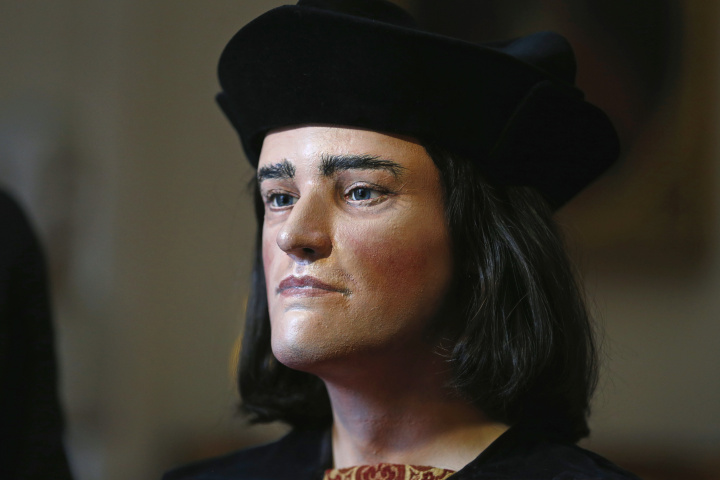
Showing a hint of a smile, a prominent chin, and slightly arched nose, the facial reconstruction is based on a skull found along with other bones just 2 feet beneath a car park in Leicester, UK, last September.
The reconstruction follows confirmation that the skeleton was that of the king killed in battle more than 500 years ago.
According to Richard Buckley, the lead archaeologist on the project at the University of Leicester, DNA tests had proved “beyond reasonable doubt” that the bones were those of the last Plantagenet king.
The model was created by digitizing a three-dimensional image of the complete skull and using the bone structure to estimate the thickness of the various layers of muscle and skin.
“When the 3D digital bust was complete it was replicated in plastic using a rapid prototyping system,” Caroline Wilkinson, professor of craniofacial identification at Dundee University, UK, said.
The head was painted and textured with prosthetic eyes. Using portraits as reference, the researchers created a realistic and royal appearance by dressing the king with a wig, hat and clothing.

Although the essential features of Richard are quite similar to those shown in various depictions of the king, of whom no contemporary portraits exist, the model reveals a more pleasant and younger face.
Indeed, many of the later portraits of Richard showed him with a rather mean face — quite appropriate for the bloodthirsty usurper depicted by Shakespeare.
“It doesn’t look like the face of a tyrant… He’s very handsome. It’s like you could just talk to him, have a conversation with him right now,” Philippa Langley, a member of the Richard III Society who instigated the search for the skeleton, told Channel 4′s documentary “King in a Car Park.”
Richard III was killed in 1485 in the Battle of Bosworth, which was the last act of the decades-long fight over the throne known as War of the Roses. The king was defeated by Henry Tudor, who became King Henry VII.
Examinations of the skeleton revealed that Richard III was 5 feet, 8 inches tall and had a slender, almost feminine physique.
He suffered from scoliosis, a severe curvature of the spine, in line with the hunchback king described by Shakespeare.
The skeleton of England’s last medieval king may be reburied in Leicester Cathedral, which is a just short distance away from the car park where it was found.
The Cathedral is expected to approve the re-interring request later this year.


No comments:
Post a Comment